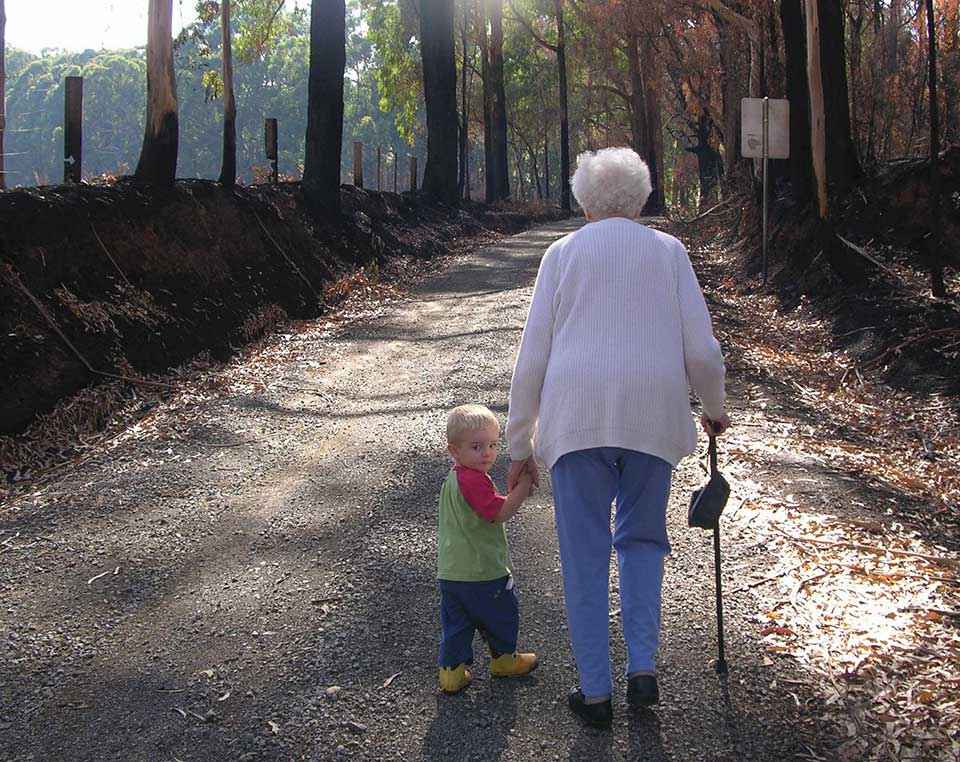Victorian Landcare Magazine - Winter 2019, Issue 75

The academic progress of many children in fire-affected areas was substantially impacted compared to their peers in unaffected areas.
In the wake of the Black Saturday bushfires in 2009, the Victorian community was faced with the urgent need to learn more about how to support those affected so we can improve recovery processes in the event of another disaster.
This was our motivation for conducting the Beyond Bushfires study, in which we investigated the experiences of those affected by the fires three to five years after they occurred. It was very much a team effort, with thoughtful and generous contributions from people living in towns across Victoria, community organisations, government and service providers, and a research team guided by experts in the field.
The findings from the original Beyond Bushfires study are being used to improve emergency recovery planning and services across Australia. Internationally, they have been shared by the United Nations Office for Disaster Risk Reduction.
We know that 10 years on from the 2009 fires, the impacts continue to be felt by many. However, these long-term experiences are not as well-understood or as well-researched as short-term recovery.
In response to this gap in knowledge, the Victorian State Government and Australian Red Cross have provided funding for the 10 Years Beyond Bushfires study, in which we will complete another round of surveys with the previous participants.
As we prepare for this next phase of the research and reflect on the past decade it’s a good time to share some of the key lessons we have learnt so far.
Firstly, we learnt the difference that personal relationships and social networks make to recovery. The nature of the social influences on a person’s recovery experience is complicated, but the over-riding finding was that social ties matter.
Belonging to local community groups was found to be such an important contributor to mental health and wellbeing outcomes that in communities where many people belonged to local groups the benefits extended to other people living in that community. This is something that can be promoted as a way of building ongoing community resilience.
We also learnt how a large-scale and devastating event can affect how children learn and develop.
The academic progress of many children in fire-affected areas was substantially impacted compared to their peers in unaffected areas.
We are working with non-government partners to develop and test school-based programs that give children the knowledge, skills and support to be able to thrive in our disaster-prone Australian environments.
Distressingly, the study also found that four times as many women in regions affected by the Black Saturday bushfires reported violence than those in non-affected areas.
Critically, it was the increased financial stress that significantly increased the risk of post-disaster violence. This is the first time that we have had clear, controlled research comparing affected and unaffected areas in this way.
In our efforts to identify systems that support recovery we cannot overlook the strength people drew from the bush that surrounded them. Our research showed that people who were attached to the natural environment were more likely to report positive mental health, wellbeing and resilience three to five years after the fires.
Based on our findings, we released a set of recommendations at the individual, family, community, service, and public policy level. Now is the time to put this knowledge into practice for the wellbeing of those in disaster prone areas.
Professor Lisa Gibbs is a researcher at the University of Melbourne.
For the recommendations and more information email info-beyondbushfires@unimelb.edu.au or visit https://mspgh.unimelb.edu.au/centres-institutes/centre-for-health-equity/research-group/beyond-bushfires